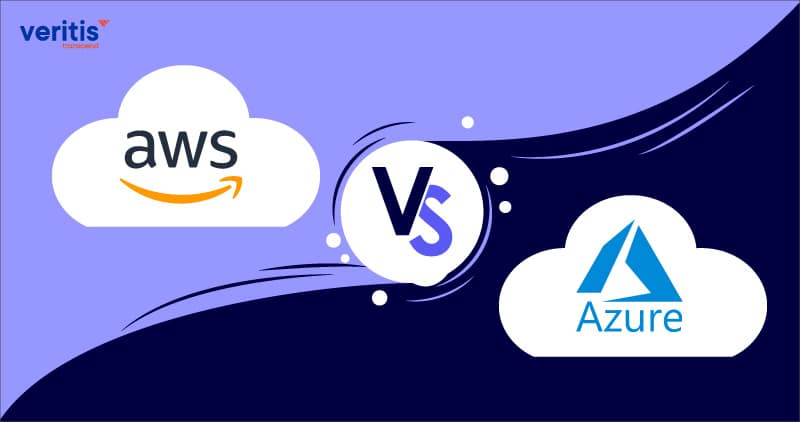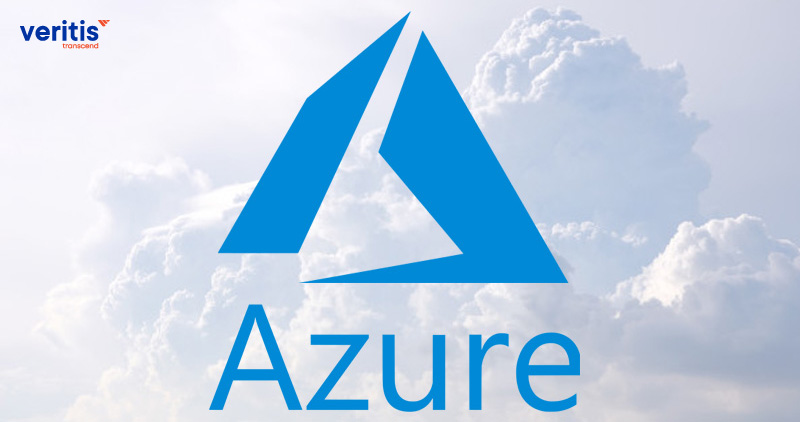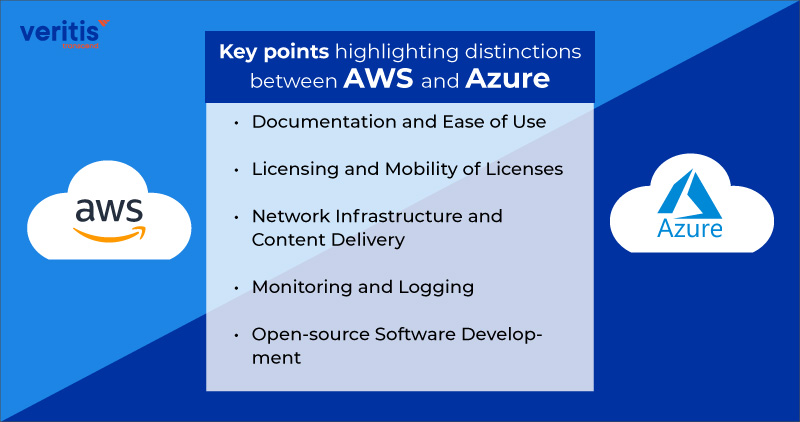
According to a leading IT research agency, around 80 percent of companies globally will close their traditional data centers by 2025. Another research study states that most enterprises will likely manage 83 percent of their IT workloads in the cloud.
Given these two facts and the ongoing scenario, we can understand where the IT industry is heading…No doubt, it’s all the magic of ‘cloud trend’! Cloud is already on drastic penetration and has started seeing new highs driven by major cloud trends such as Amazon Web Services (AWS), Azure, and Google Cloud Platform (GCP).
According to Synergy Research Group, AWS remains the vital force in the cloud market, holding a substantial 31.8% market share. Despite a slight reduction in AWS vs Azure market share, AWS maintains a 43% year-over-year growth, attesting to its continued expansion and influence in the industry.
With an extensive global presence, AWS operates over 84 Availability Zones across 26 geographic regions, catering to millions of active customers ranging from large enterprises and government agencies to innovative startups (Source: Amazon).
As reported by Synergy Research Group, Azure, Microsoft’s cloud computing platform, has significantly closed the gap with AWS, securing a notable 23.5% cloud services market share in Q3 2023.
According to experts, Azure’s impressive 78% year-over-year growth rate underscores its rapid ascent and formidable challenge to AWS. Boasting operations in over 60 Availability Zones across 140 countries, Azure proudly serves over 1 million customers, with an impressive clientele that includes 95% of Fortune 500 companies (Source: Microsoft).
Furthermore, Azure has cultivated a robust professional community, with over 800,000 certified professionals worldwide, highlighting the platform’s commitment to expertise and skill development (Source: Microsoft).
Thanks to the aforementioned cloud trends, many CTOs, CIOs, and top-level business executives globally have already added ‘cloud migration strategy or migration to cloud’ to their check-list to reap the benefits of the digital trend.
However, running for the cloud service providers comparison is challenging as the market has multiple trending options, making it difficult to finalize one. We will discuss one such scenario involving the confrontation between the two market-leading cloud platforms: Azure vs AWS cloud!
Connect with a Cloud Advisor Today
Looking at the pros and cons of either side addresses the challenge. So, let us dive further into the advantages and disadvantages of Azure vs AWS cloud:
Amazon Web Services (AWS)

AWS has been one buzzword for a very long time. Amazon gave the cloud world an advantage over the AWS cloud platform, which has been widely appreciated for its wide gamut of AWS vs Azure services.
By overall positioning, AWS stood in a league of its own among strong niche players IBM, Rackspace, Salesforce, and Oracle, among others. Continuing the pace, AWS is expected to grow further to control more than 50 percent of the cloud market in 2024.
Having AWS in place can give you following advantages:
- More Flexibility
- On-demand Scalability
- Fast-paced deployment
- Timely updates to applications and services
- AWS Partner Network (APN) that can help you in digital transformation
- Multiple application and service options irrespective of business size
- Seamless Assistance in Transition to Digital Platform
- Pay-as-you-go and pay-per-use services, releasing the burden
- AWS shared responsibility model for security
- Customer-friendly support
Like every entity with two shades, AWS also has some disadvantages, mainly attributed to delays in migrating legacy systems. Another challenge is the availability of too many applications and AWS vs Azure services, giving scope to manipulation.
Challenges aside, you have APN to assist you in your journey to AWS!
Useful link: Choosing the Right AWS EC2 Instance Type for Your Application
Azure

If you are speaking about the current cloud storage options AWS vs. Azure market, Azure is one that you can’t miss mentioning. Given the above statement, one can gauge Azure’s footprint in the cloud computing service providers comparison market.
Regarding AWS vs Azure market share, Azure stood next to AWS but led the quarter in growth rate. While AWS exhibited 48 percent growth with 31 percent market share, Azure performed rapidly by registering a two-fold growth of 89 percent compared to AWS.
With this faster growth rate, Azure stood as the prime competitor for AWS in the cloud infrastructure market, reaching close to becoming a market leader. The major positive factor for Azure’s growth is its integration strategy of linking on-premises with the cloud service providers comparison.
Following are some key advantages Azure can offer you:
- High Scalability
- Enhanced security
- Good operational performance
- Cost-efficiency to business
- Infrastructure as a Service
- Platform as a Service
- Well-planned hybrid solutions
- Open source assistance
There are also some disadvantages with Azure, majorly attributed to complexity in implementation and management compared to AWS, expensive compared to AWS, pay-as-you-go as an additional service unlike AWS, and weak DevOps support.
However, AWS vs. Azure for enterprises, Azure is a preferred solution for large enterprises, and small and medium enterprises might find it cumbersome.
Useful Link: AWS Vs Azure Vs Google Cloud Feature Comparison
Difference Between Azure vs AWS cloud

Here are key points highlighting distinctions between AWS and Azure.
1) Documentation and Ease of Use
The AWS interface combines robust features with user-friendly simplicity, complementing comprehensive documentation. On the other hand, Azure consolidates account details seamlessly but presents a more intricate and less easily accessible documentation structure.
2) Licensing and Mobility of Licenses
AWS provides highly flexible licenses with a diverse range of features. Meanwhile, Microsoft Azure offers a user-friendly setup for Windows administrators and a broader selection of Software as a Service (SaaS) options.
3) Network Infrastructure and Content Delivery
AWS allows users to establish secure, private networks through its Virtual Private Cloud (VPC). In contrast, Azure utilizes a virtual network, employing a VPN gateway to facilitate communication between diverse networks.
4) Monitoring and Logging
In AWS SageMaker, CloudWatch records model metrics and data evolution. On the other hand, Azure ML Studio utilizes MLflow to capture and track data. Each platform offers a robust solution for comprehensive monitoring and analysis of machine learning models.
5) Open-source Software Development
AWS is compatible with Linux and equipped with connectors for open-source applications, making it a prime choice for developers engaged in open-source software projects. In contrast, Microsoft Azure is gradually embracing open-source developers, marking a recent shift in its approach.
Useful link: AWS Vs Azure Vs GCP – The Cloud Platform of Your Choice?
Which is the Best: AWS or Azure?

Veritis can be your better option, considering the firm’s decade-old expertise in dealing with firms of different verticals (including Fortune 500) and internal cloud migration strategies expertise, among many other advantages in line with your budgets and requirements.
As organizations weigh the pros and cons, Veritis emerges as a beacon of expertise, recognized with Stevie and Globee Business Awards. With a decade-long track record and a commitment to tailored solutions, Veritis is the trusted ally for businesses navigating the intricate cloud transformation journey. For a seamless path toward digital excellence, Veritis is the partner of choice, ensuring success in the ever-evolving cloud.
Schedule a Call to Build Your Cloud Roadmap
Additional Resources: